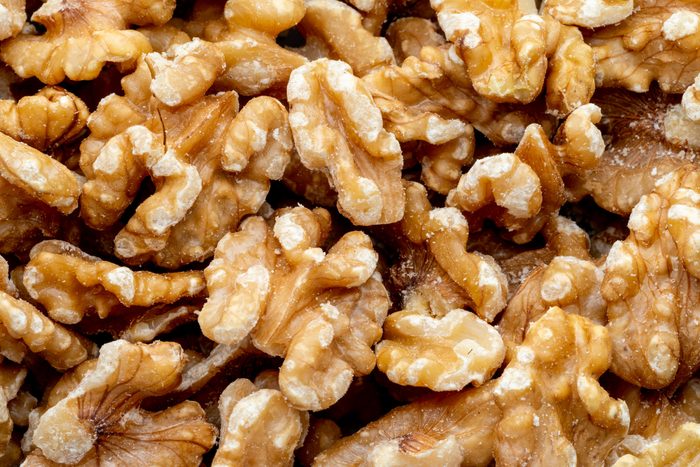New Study: Eating More of This Superfood May Prevent Lung Disease
Updated: Nov. 29, 2023

This nutrient has been celebrated for its heart and brain benefits. New NIH-funded research suggests they're surfacing as lung health champions, too.
It’s an understatement to say lung health has taken higher priority since the COVID-19 pandemic. Plus, lung conditions that are often influenced by the environment and lifestyle, like COPD and smoking-induced lung cancer, also remain as significant concerns. New research suggests strengthening up your lungs to ward off illness could be as simple as adding a little one powerful nutrient to your diet more regularly.
Chronic lung diseases encompassing chronic obstructive pulmonary disease (COPD) and asthma represent a global health challenge. As per data from the World Health Organization, COPD ranks as the third leading cause of death worldwide. Chronic inflammation is the main perpetrator behind these diseases, resulting in lung tissue damage and diminished lung function.
Patricia A. Cassano, MPH, PhD, study author and Director of the Division of Nutritional Sciences at Cornell University, states, “We know a lot about the role of diet in cancer and cardiovascular diseases, but the role of diet in chronic lung disease is somewhat understudied.” She adds, “This study adds to growing evidence that omega-3 fatty acids, which are part of a healthy diet, may be important for lung health too.”
Get The Healthy @Reader’s Digest newsletter
Omega-3 fatty acids, which are essential polyunsaturated fats, provide significant contributions to cellular health. According to the Cleveland Clinic, they are instrumental in promoting efficient cell function and are central to the makeup of cell membranes, fostering structure and enhancing cell-to-cell communication. Found in foods such as salmon, walnuts and flaxseed, omega-3s are renowned for their ability to mitigate inflammation and better cholesterol levels, and they continue to reveal additional health advantages.
Recent research backed by the National Institutes of Health (NIH), and published in the peer-reviewed American Journal of Respiratory and Critical Care Medicine in June 2023, introduces a compelling link between omega-3s and reduced risks of chronic lung diseases. This suggests that there’s so much more you might gain from including these powerful nutrients in your diet than previously thought.
The research into omega-3s and their impact on lung health was divided into two comprehensive phases. The first phase, a longitudinal study, involved monitoring over 15,000 initially healthy Americans for as long as two decades. An important finding was that individuals with higher omega-3 blood levels showed a slower decline in lung function. DHA, or Docosahexaenoic acid, abundant in fatty fish, had the most significant correlation.
The second phase centered on a genetic analysis involving a massive sample of 500,000 Europeans from the UK Biobank. Researchers explored genetic markers representing dietary omega-3 intake. This analysis confirmed the earlier findings, with higher omega-3 levels, particularly DHA, linked to superior lung function.
However, it’s essential to note that the research primarily centered on healthy adults. Ongoing investigations are zeroing in on omega-3 impacts on populations with existing COPD, including frequent smokers.
“I Got Lung Disease from Vaping and Almost Died”
How to increase your intake of omega-3s
Bonnie K. Patchen, RD, PhD, nutritionist at Cornell, highlights a significant shift in nutritional research, emphasizing, “We’re starting to turn a corner [in nutritional research] and really moving toward precision nutrition for treating lung diseases.” This indicates a future with more tailored dietary guidance, especially for individuals at risk for chronic lung conditions.
While the U.S. Department of Agriculture currently recommends two servings of fish each week, many aren’t hitting the mark. If you’re eager to enhance your omega-3 intake, Anna Taylor, RD, registered dietician at the Cleveland Clinic, advises to focus on food sources over supplements. Opting for fatty fish like wild-caught salmon, herring, sardines and shellfish can help both increase omega-3 levels and maintain safe mercury concentrations. Flaxseed oil and chia seeds also provide healthy doses of these essential fatty acids.
For more wellness updates, subscribe to The Healthy @Reader’s Digest newsletter and follow The Healthy on Facebook and Instagram. Keep reading:




















